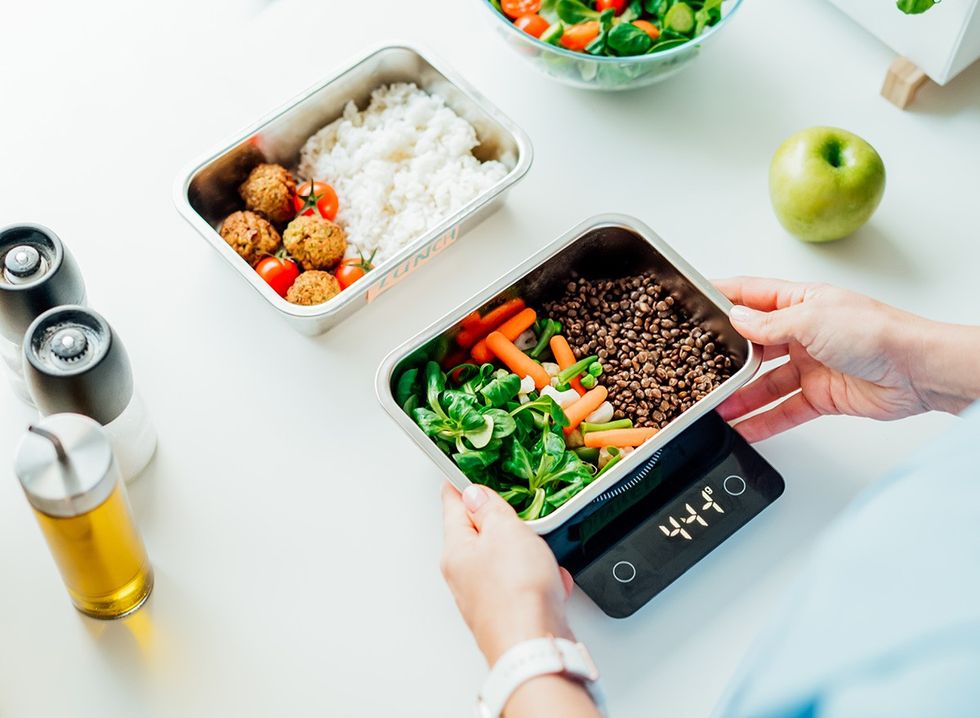Talking about menopause can be challenging for many couples. Yet, as men, understanding and supporting our partners through this natural transition is crucial for maintaining a healthy relationship. To help navigate this important life change, we turned to renowned relationship expert Dr. Emily Morse, host of the #1 rated "Sex With Emily" podcast. With thousands of listeners seeking advice, particularly menopausal women, Dr. Morse offers invaluable insights from her extensive experience speaking at longevity conferences and counseling couples through this transition.
Stop Ignoring Physical Changes

Dr. Morse explains that "just like aging men will experience more erectile dysfunction for purely natural reasons, aging women will experience differences in their anatomy for purely natural reasons." She notes that "lowered estrogen levels affect lubrication levels of the vagina. This can lead to micro-tears and make sex uncomfortable."
Start Adapting to New Physical Needs

Your partner will appreciate it if you take things slow. "Men need to be educated on lube and going slow, as it takes women much longer than them to undergo the full arousal process!" advises Dr. Morse. She explains that "arousal is crucial because it engorges the genitals with blood, which makes sex more pleasurable." Consider incorporating supplements like Solaray's her life STAGES Libido formula, which Dr. Morse notes is "designed to support enhanced arousal, natural lubrication, and sexual satisfaction."
RELATED: 20 Superfoods for People Over 50
Stop Dismissing Menopausal Symptoms

Think about it: you wouldn't want someone brushing off your health concerns, either. A major issue Dr. Morse identifies is "minimizing reactions to symptoms like hot flashes ('it's not THAT hot') and low sex drive, making jokes about menopause."
She warns that "it's problematic on many levels, but it also hurts the integrity of the relationship when a woman feels like she is being gaslit for symptoms that aren't always easy to explain."
Start Understanding All Symptoms

How do you feel after a rough night? Now imagine it happens non-stop for weeks, months, even. Dr. Morse points out that "almost half of postmenopausal women have sleep problems, which can lead to more symptoms – loss of desire and more anxiety."
She adds that "anxiety, irritability, anger, and depression are all common menopausal symptoms," along with "hot flashes and night sweats: common menopausal symptoms that can make intimacy uncomfortable."
Stop Avoiding Discussions About Intimacy

Let's be honest – nobody's a mind reader. "Not talking about your sex life" is the biggest mistake men make, according to Dr. Morse. She warns that this avoidance often "leads to cheating, resentment, etc." When couples don't discuss these changes, they risk their intimate connection deteriorating.
RELATED: I'm 50+ and These 7 Fat-Blasting Habits Keep Me in the Best Shape of My Life
Start Having Open Conversations

Just like any other aspect of your relationship, communication is key here. The solution is clear: "Keep talking to each other!" Dr. Morse emphasizes. "When couples discuss what kinds of activities increase their desire and which ones decrease their desire, they'll be able to find a routine that works." She adds that "supplementation, possibly hormone replacement therapy, and (most importantly) communicative collaboration all help you maintain a positive sexual connection."
Stop Believing Myths About Menopause and Sex

You’re not too old for rock and roll, and you’re definitely still too young to die. Life can still be fun. Think of this as a new chapter, not the end of the story. "We've been trained to think of it as 'the end' for sex, and it's absolutely not," Dr. Morse states firmly. This misconception can lead couples to give up on their intimate life unnecessarily.
Start Exploring New Forms of Intimacy

Consider this an opportunity to discover new ways to connect with your partner. "For many women, penetration isn't where the most pleasure and satisfaction lives," Dr. Morse explains, "so it's a time to explore other paths for connection." She notes that many women are "wanting slower sex, more foreplay (now more than ever), different positions, and want to bring in sex toys and lube."
Stop Ignoring Changes in Desire

Just like your appetite changes throughout the day, desire isn't always constant. Dr. Morse explains that "desire (the want to want to have sex)" also changes. Without the surge of hormones, lack of sleep (due to menopausal symptoms and stress,) the desire to have sex takes more thought and understanding."
RELATED: I Hit 60 and These Daily Habits Keep Me Fit and Feeling 20 Years Younger
Start Taking Action for Positive Change

The effort you put in now will pay off in maintaining a strong, intimate relationship. "When couples prioritize their sex life and do what it takes to keep it on track, it is possible to have the intimacy and sex life we all deserve," Dr. Morse affirms. "Commit to your sex life and intimacy and find ways to make it work for both of you. Our sex lives are always changing, but it doesn't have to stop!" And if you enjoyed this article, don't miss 40 Health Symptoms That Can Be More Serious Than You Think.













 Why Protein Becomes More Important After 40Shutterstock
Why Protein Becomes More Important After 40Shutterstock Shutterstock
Shutterstock Strength TrainShutterstock
Strength TrainShutterstock Putting It All Together: Your After-40 Eating StrategyShutterstock
Putting It All Together: Your After-40 Eating StrategyShutterstock HydrationShutterstock
HydrationShutterstock She Gets Rest and Takes Time for Self-CareShutterstock
She Gets Rest and Takes Time for Self-CareShutterstock 5. Use Progressive Muscle Relaxation TechniquesShutterstock
5. Use Progressive Muscle Relaxation TechniquesShutterstock
 Shutterstock
Shutterstock Shutterstock
Shutterstock Shutterstock
Shutterstock Shutterstock
Shutterstock Shutterstock
Shutterstock Shutterstock
Shutterstock Shutterstock
Shutterstock Shutterstock
Shutterstock
 Shutterstock
Shutterstock Shutterstock
Shutterstock Shutterstock
Shutterstock

 Shutterstock
Shutterstock Shutterstock
Shutterstock Shutterstock
Shutterstock Shutterstock
Shutterstock Shutterstock
Shutterstock Shutterstock
Shutterstock Shutterstock
Shutterstock

 I'm a Nutritionist and These 9 High-Protein Snacks Keep My Clients Full While Losing 50 Pounds
I'm a Nutritionist and These 9 High-Protein Snacks Keep My Clients Full While Losing 50 Pounds
 Shutterstock
Shutterstock 2. Processed FoodsShutterstock
2. Processed FoodsShutterstock Shutterstock
Shutterstock Shutterstock/Prostock-studio
Shutterstock/Prostock-studio Shutterstock
Shutterstock Pro TipsShutterstock
Pro TipsShutterstock Shutterstock
Shutterstock Shutterstock
Shutterstock Shutterstock
Shutterstock Shutterstock
Shutterstock Don’t Drink as Much AlcoholShutterstock
Don’t Drink as Much AlcoholShutterstock Most Women on GLP-1s Are Making a Few Common MistakesShutterstock
Most Women on GLP-1s Are Making a Few Common MistakesShutterstock Soda and Sugary DrinksShutterstock
Soda and Sugary DrinksShutterstock Shutterstock
Shutterstock And Improve Insulin SensitivityShutterstock
And Improve Insulin SensitivityShutterstock Belly Flab Strip Tip: Sugar and Fat Calories Leave Its Mark on Your BodyShutterstock
Belly Flab Strip Tip: Sugar and Fat Calories Leave Its Mark on Your BodyShutterstock Shutterstock
Shutterstock The Drugs Mimic the GLP-1 Hormone Naturally Produced by the BodyShutterstock
The Drugs Mimic the GLP-1 Hormone Naturally Produced by the BodyShutterstock 3. Deep-Fried ItemsShutterstock
3. Deep-Fried ItemsShutterstock